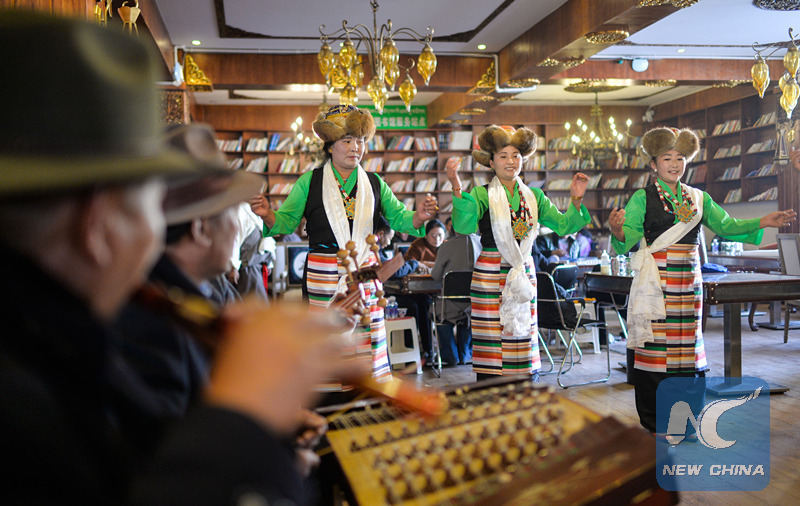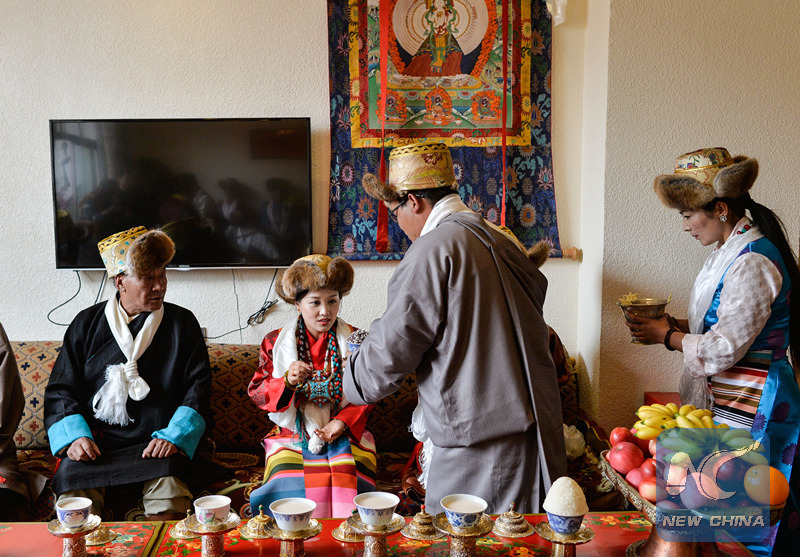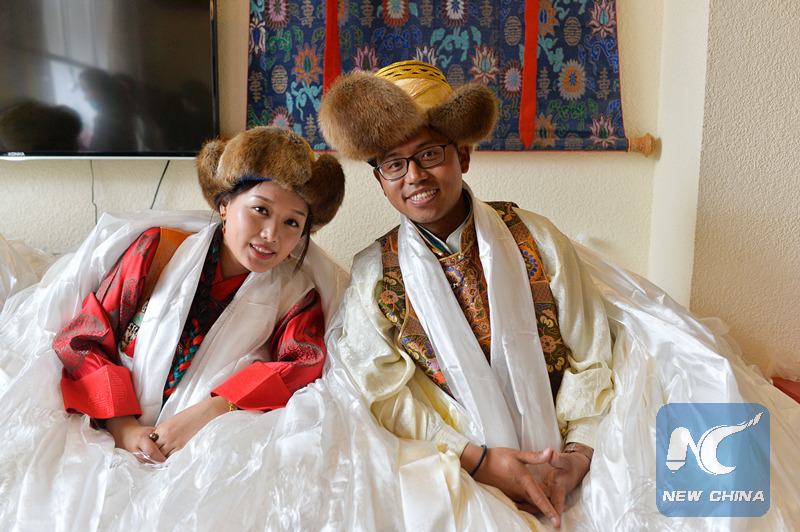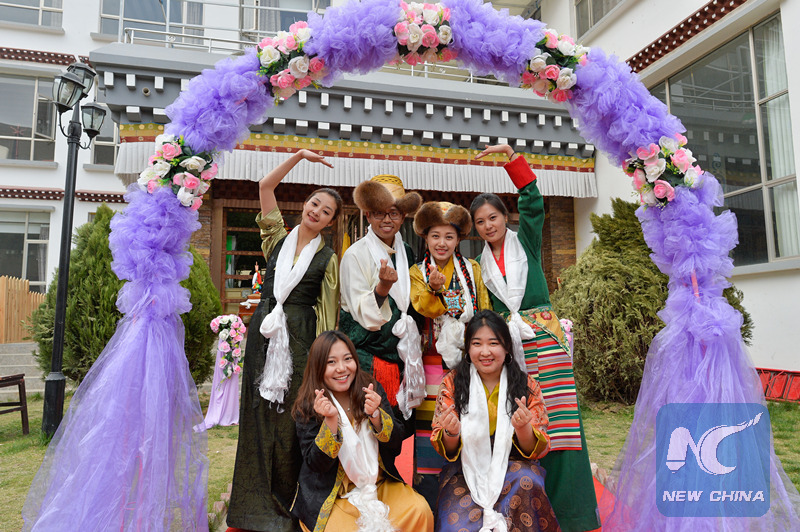A Tibetan wedding: Something old, something new

People dance to the folk music at a Tibetan wedding in Lhasa, on May 1, 2016. [Photo/Xinhua]
Welcome to the wedding of Tenzin Jigme and Tenzin Drolkar! Surrounded by families and friends, the young Tibetan couple held a joyful Tibetan style wedding in Lhasa, capital city of southwest China's Tibet Autonomous Region.
In the city of Lhasa, weddings are often a combination of both Tibetan and Western styles. At a modern Tibetan wedding, you can easily see customs such as presenting hada (a white ceremonial scarf made of silk), drinking the highland barley wine and throwing tsampa, a kind of roasted barley flour.

In the middle of the ceremony. [Photo/Xinhua]
Traditionally, for a Tibetan-style wedding, the bride will be first waiting at her home for the convoy to arrive and take her to her groom's house, where the ceremony takes place.

A host offers highland barley wine to the couple's parents during a Tibetan wedding ceremony in Lhasa, Sept. 15, 2012. [Photo/Xinhua]
When leaving her home, the bride will have a colorful arrow plugged on her back to show she now belongs to the bridegroom's side.
When the bride arrives at her groom's, the wedding ceremony will begin. It will include exchanges of hadas between the two families. The bride will also serve milk-tea to her groom's parents. It is important that she flicks a drop of tea over her head as a respectful salutation to heaven, earth and Buddha.
The ceremony will be followed by a banquet, where family and friends sing and dance. The guests will pass on blessings and gifts to the newly-weds.

Hadas pile up around the couple. [Photo/Xinhua]
In the past, for some rich families, the wedding ceremony could last as long as ten days. It is now common to hold a wedding just over the weekend.
Families and guests often go to a hotel to celebrate, and it's fashionable to have a buffet dinner.

The newly-weds with their friends. [Photo/Xinhua]
In the eyes of the Tibetans, marriage brings prosperity to a family. Although the marriage customs are simplified, people's prayer for happiness and joy remains the same as their ancestors.
Your Comment
Name E-mailRelated News
-
;
Based in Lhasa, Tibet Vista is a Tibet travel agency that specialized in Tibet permit, and Tibet tours for both private and group travelers at a local price!
•4 Days Lhasa City Group Tour from USD 460 •8 Days Everest Base Camp Group Tour from USD 850 •15 Days Mt.Kailash Group Tour from USD 1780 •2016 Tibet Train Tours from Beijing, Shanghai, Chengdu, Xining,etc










